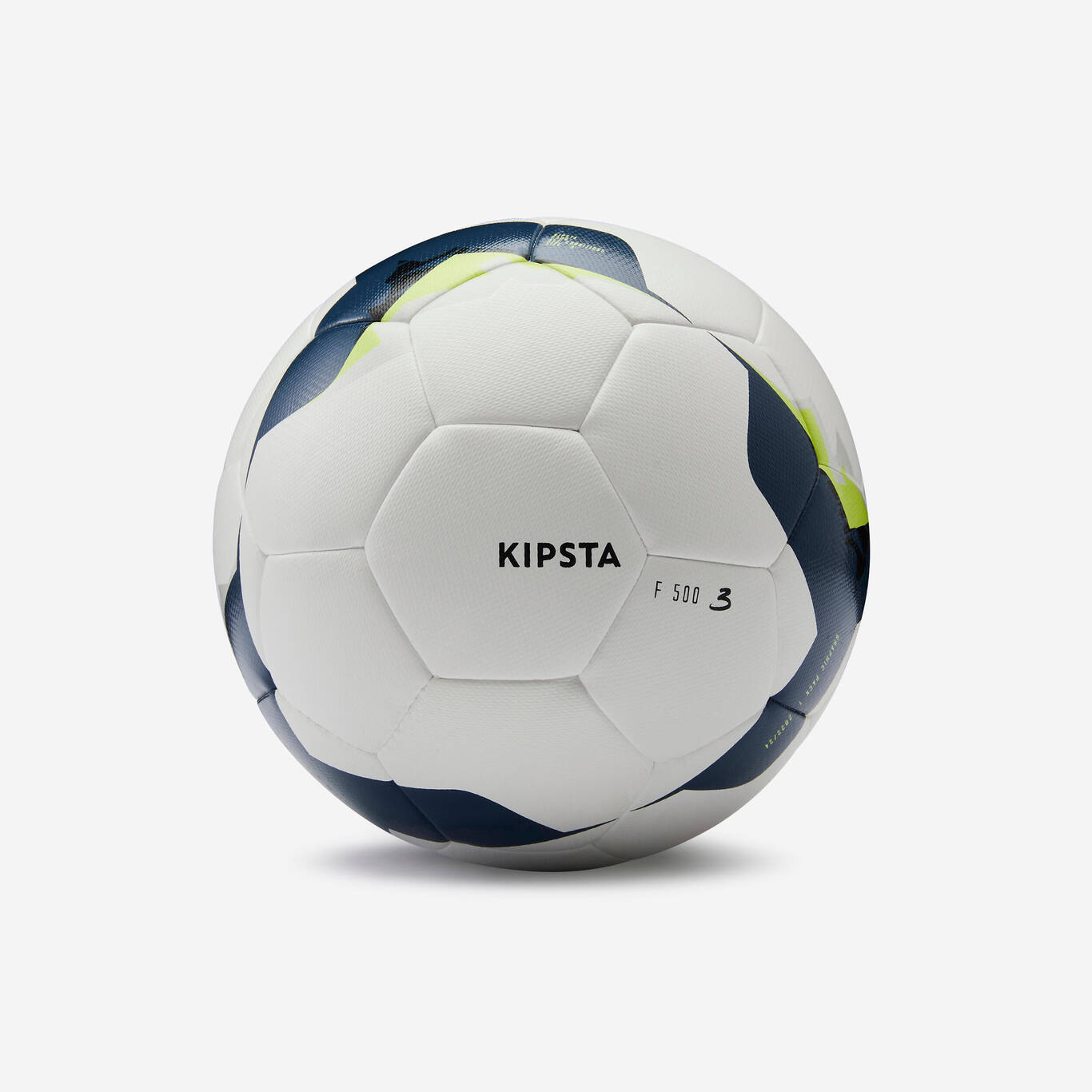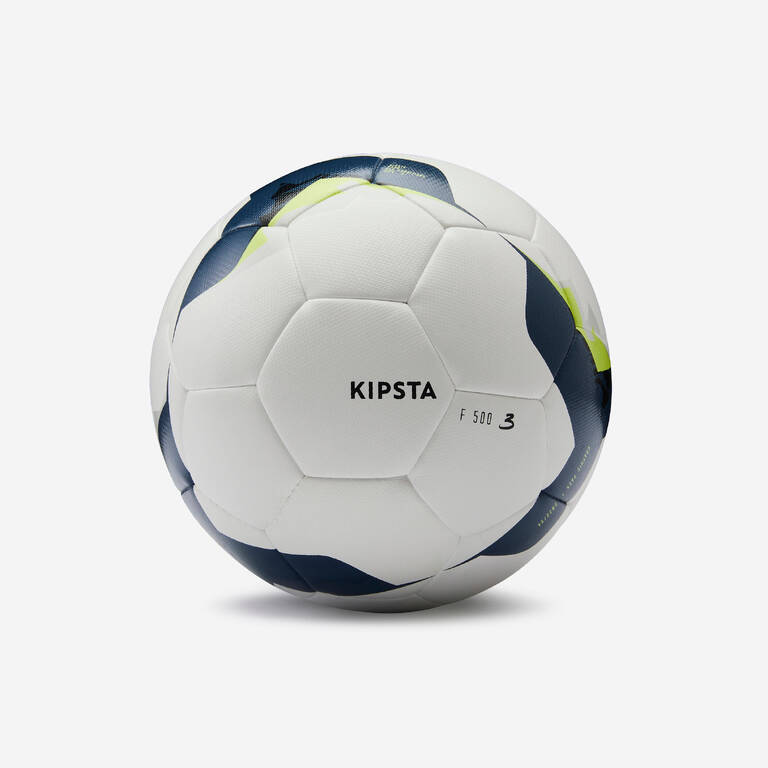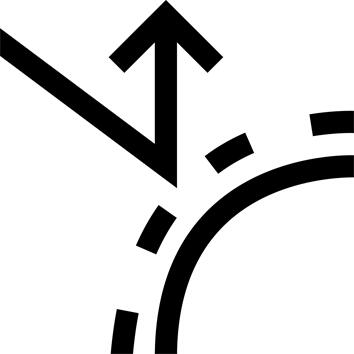The story behind this ball
Our design team created this hybrid ball after observing football players in action on the pitch.
This ball is a hybrid because its design combines the comfort of a machine-stitched ball with the durability of a hand-sewn one.
We also used a bladder with a special design (2 km of thread is wrapped around the bladder) to ensure lasting inflation and better sphericity.
Too light? Too heavy? The weight is standardised...
This ball weighs between 290 g and 335 g (size 3) and complies with official FIFA standards.
How big is it? What's the circumference?
This ball measures between 58.0 cm and 60.0 cm (size 3) and complies with official FIFA standards.
A "round" ball?
Here's how we test sphericity:
Average measured variation: 1.8% max (FIFA Basic certification).
We measure the football's sphericity at 4500 different points and then examine any differences.
If the discrepancy is greater than 1.8 % (FIFA Basic Standard), our engineers are tasked with improving the sphericity to ensure a consistent bounce.
Maximum pressure loss test: here's what we do...
Here's how we test pressure loss: We inflate the ball to the recommended pressure (meaning 0.8 bar).
72 hours later, the ball must not have lost more than 15% of its pressure, meaning approx. 0.1 bar (FIFA Basic certification). The pressure after 72 hours must, therefore, be at approx. 0.7 bar.
This also means that it is quite normal for a ball to lose pressure after a few days.
We've also tested how much water the ball absorbs...
Here's how we test water absorption:
We simulate rainy playing conditions in a lab, leaving the ball to sit in 2 cm of water on a pivoting support whilst subjecting it to 250 compressions.
At the end of the test, the ball must have absorbed no more than 15% of its weight (FIFA certification).
It's all about the bounce
Here's the bounce test:
The ball is dropped onto a steel plate 10 times from a height of 2 metres.
The bounce height must be between 115 and 155 cm with a maximum difference of 10 cm between the ball's highest and lowest bounce.
Not even a scratch!
The most stringent test we put this ball through is the shooting machine test.
The ball must withstand 2500 shots against an inclined concrete surface at 50 km/h from a distance of 2.5 m.
At the end of the test, we check:
- the ball's general state: stitching must withstand this test
- the circumference: must not have increased by more than 1.5 cm.
- the sphericity: it must not have varied by over 1.8%
- the pressure: loss of pressure must not exceed 12.5%.
How about you? What do you think?
We value your feedback and use it to continuously improve our products.A huge thank you in advance for sharing your feedback with us.





















